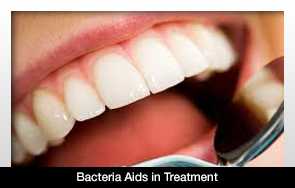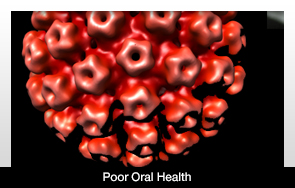HPV infection linked to poor oral health, say cancer prevention researchers
Featured ArticleAcademic JournalMain Category: DentistryAlso Included In: Infectious Diseases / Bacteria / Viruses; Cancer / OncologyArticle Date: 22 Aug 2013 - 0:00 PDT
Current ratings for:
HPV infection linked to poor oral health, say cancer prevention researchers
| Patient / Public: |  |
|
| Healthcare Prof: |  |
|
Infection with oral human papillomavirus (HPV) - a main cause of throat cancer - could be linked to poor oral health, including gum disease, according to a study published in the journal Cancer Prevention Research.
Researchers from the University of Texas Health Sciences Center in Houston analyzed data from the 2009-2010 National Health and Nutrition Examination Survey (NHANES), which was carried out by the National Center for Health Statistics of the Centers for Disease Control and Prevention (CDC).
Some 3,439 participants were included in the data, aged between 30 and 69 years. Participants were chosen based on their available oral health data and the presence or absence of 19 low-risk
HPV types, as well as 18 high-risk HPV types in the oral cavity.
The oral health data included the following four measures:
- Self-rating of overall oral health
- Presence of gum disease
- Use of mouthwash to treat dental problems (within past 7 days of survey)
- The number of teeth lost.
Factors that may influence HPV infection were also analyzed, including age, gender, marital status, marijuana use, cigarette smoking and oral sex habits.
Oral health an 'independent risk factor'
The findings showed that the participants who reported bad oral health had a 56% higher risk of developing oral HPV infection compared with those who had good oral health.
Those with gum disease showed a 51% higher risk of oral HPV infection, while those with dental problems had a 28% higher risk. The researchers were also able to link oral HPV infections to the number of teeth lost.
Additionally, the findings showed that males who smoked cigarettes, used marijuana and participated in oral sex regularly had increased risks of oral HPV infection.
They note that self-rated overall oral health was an independent risk factor for the infection, as the link did not vary regardless of whether the participant smoked or had multiple oral sex partners.
Thanh Cong Bui, postdoctoral research fellow in the School of Public Health at the University of Texas Health Sciences Center, says:
"Poor oral health is a new independent risk factor for oral HPV infection and, to our knowledge, this is the first study to examine this association.
The good news is, this risk factor is modifiable. By maintaining good oral hygiene and good oral health, one can prevent HPV infection and subsequent HPV-relatedcancers."
Call for more research on the causes
HPV is a virus that affects areas including the throat, mouth, feet, fingers, nails, anus and cervix - areas of the skin and the mucus membranes that line the body.
The study authors say that similar to genital HPV infection, oral HPV infection can be divided into two types. The first are low-risk HPV types that are not a cause of cancer, but cause benign tumors and
warts in the oral cavity. The second are high-risk HPV types that can cause throat cancers.
According to the researchers, oral HPV infection causes 40-80% of oropharyngeal cancers (throat cancers).
Medical News Today recently reported a study that suggests a certain strain of HPV is
linked to a third of throat cancers.
The present study authors say that because HPV needs a wound in the mouth to enter and infect oral cavities, bad oral health could create an "entry portal" for HPV - mouth ulcers, mucosal disruption or chronic inflammation in particular.
They note, however, that there is not enough evidence at present to support this and further research is needed.
Thanh Cong Bui adds:
"Although more research is needed to confirm the causal relationship between oral health and oral HPV infection, people may want to maintain good oral health for a variety of health benefits. Oral hygiene is fundamental for oral health, so good oral hygiene practices should become a personal habit."
Although the majority of us know how to look after our oral health, the
Mayo Clinic lists a few reminders on dental care basics:
- Brush your teeth at least twice a day
- Use a fluoride toothpaste and a soft-bristled brush that fits your mouth comfortably, and consider using an electric toothbrush - this can reduce plaque and gum disease
- Practice good technique - remember to brush the outside, inside and chewing surfaces of your teeth, as well as your tongue
- Keep your toothbrush clean - always rinse it with water after brushing, store in an upright position and allow it to air dry before using it again
- Replace your toothbrush or toothbrush head every 3 to 4 months.
Written by Honor Whiteman
Copyright: Medical News Today Not to be reproduced without permission of Medical News Today






